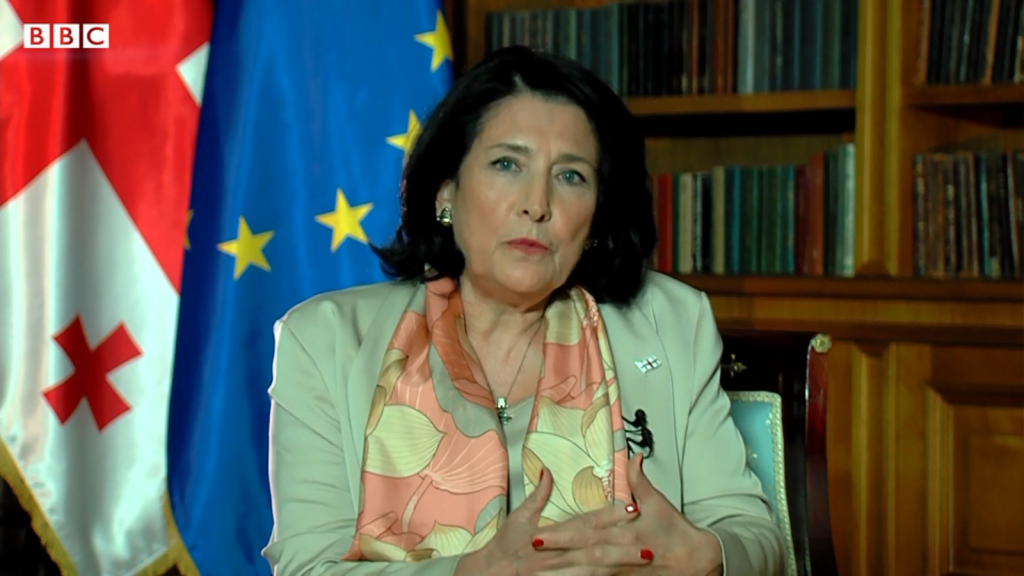BBC’s Hardtalk aired on March 9 an interview with Georgian President Salome Zurabishvili, in which she rebuffed allegations that post-election-crisis-hit Georgia is sliding into authoritarianism, following the detention of Nika Melia, the largest opposition party chair.
She said “neither the timing nor the form [of Melia’s detention] probably was the best” for de-escalating the political tensions in the country, noting, however, that one event “does not mean that Georgia has suddenly become an authoritarian country.”
President Zurabishvili said Melia’s detention was preceded in the first place by “provocations” on part of the opposition, including during the June 20-21, 2019 anti-occupation unrests for which the UNM leader is facing charges.
The President of Georgia also noted that political polarization is a characteristic of democracy, not of authoritarian regimes. Still, she underscored, all political parties shall now find a way out of the crisis by agreeing on compromises in the EU-mediated negotiations, if “they really believe Georgia has a European future.”
Speaking of EU mediation efforts, she said, European Council President Charles Michel’s recent visit to Tbilisi shows the West has not “discarded” Georgia, and expressed her optimism that the relaunch of post-election talks will pave the way for the solution in the coming days.
In the extensive interview, President Zurabishvili also dismissed the opposition’s claims of “election fraud” in October 2020, citing the final observation report by ODIHR which “did not put the legitimacy” of the vote in question.
Background
Georgia’s major opposition parties reject the results of the last general election, citing “massive fraud.” 54 of 60 opposition MPs are still boycotting the new 150-member Parliament.
Tensions deepened in late February, after the detention of opposition leader Nika Melia, only few hours after PM Irakli Garibashvili’s election as Prime Minister. PM Garibashvili replaced Giorgi Gakharia, who resigned after refusing to greenlight Melia’s detention.
Melia, the chairperson of the former ruling United National Movement party, charged for inciting violence during June 2019 anti-occupation unrest outside the Parliament, refused to pay increased bail. The bail was imposed on him after he threw monitoring tag – as a sign of protest – during one of the post-election rallies in November.
European Council President Charles Michel spearheaded during his Tbilisi visit the relaunch of the stalled political dialogue between the ruling Georgian Dream and opposition parties, this time with EU mediating instead of previous facilitation efforts.
Also Read:
- President Michel Appoints Envoy to Mediate Georgia Crisis Talks
- EU Mediation: PM, Opposition Agree to Continue Dialogue
- Georgian President Calls for Acting Responsible Amid EU-Mediated Dialogue
This post is also available in: ქართული (Georgian) Русский (Russian)

